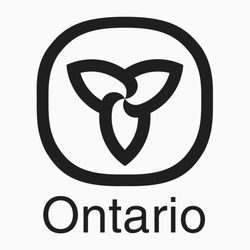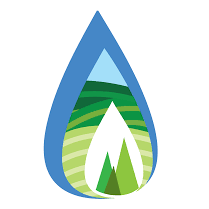
Sustainable New Agri-Food Products & Productivity Program — Productivity Enhancement
At a glance
- Maximum amount : 10,000 $
- Up to 50% of project cost
- Open Date : November 6, 2023
- Closing date : January 12, 2024
- Agriculture, forestry, fishing and hunting
- Ontario
- Non-profit
- Public or Parapublic institution
- For-profit business
- Sole proprietorship
- All revenue ranges
- All organization sizes
- Indigenous Peoples
- Persons with Disabilities
- Language Minorities
- Newcomers to Canada
- Other Racialized Persons
- Rural or Northern Residents
- 2SLGBTQI+
- Youth (<40)
- Women
- Environment
- Economic, Social and Community Development
- Diversity and Inclusion
- Indigenous peoples
- New immigrants & refugees
- People with disabilities
- Women & girls
- LGBTQ+ community
- Rural / Remote communities
- Business owners / entrepreneurs
- Nonprofits / charities
- Minority groups
- All structures
- Regional
Overview
Get funding for your project that uses innovative technologies or processes to increase efficiencies in operations and improve products and/or processes.
Activities funded
The Sustainable New Agri-Food Products & Productivity Program focuses on enhancing productivity and introducing new products in the Northern Ontario agri-food sector. The eligible projects aim at fostering innovation, improving efficiency, and enhancing the ecological footprint.
- Acquisition of food processing equipment like mixers, sterilizers, and washing systems for developing new value-added products.
- Purchase of packaging materials such as vacuum baggers and labelling machinery to support new production chains.
- Innovative pest control technologies to enhance crop management efficiency.
- Implementation of precision agriculture technologies to increase overall sales.
- Use of LED lighting in hydroponic farming to boost year-round agricultural productivity.
- Installation of irrigation or rainwater collection systems to increase productivity and drought resilience.
- Adoption of low-tillage or no-tillage farming methods to improve crop productivity and environmental benefits.
- Development of passive solar greenhouse systems to enhance year-round production and reduce energy use.
Eligibility
Eligibility for this grant is determined by specific requirements related to the applicant's legal status, location, and collaboration structure.
- The applicant must be a legal entity capable of entering into a legal agreement, such as a corporation, non-profit organization, primary sector producers, processing businesses, distributors, or Indigenous groups (First Nations, Métis, Inuit).
- At least one component of the applicant's business must be located in Northern Ontario, and the project activities must take place in Northern Ontario.
- Collaborations involving three or more partners are encouraged and must consist of independent parties to avoid potential conflicts of interest, with priority given to those strengthening the value chain in Northern Ontario's agri-food sector.
- Both startup (with at least three years of operations) and existing businesses are eligible. Startups must submit a business plan, including cash flow projections, with their application.
Who is eligible?
This grant is designed to support legal entities with a focus on agriculture and food production in Northern Ontario. Each applicant must meet the specified legal and operational criteria to be eligible for funding.
- Incorporated entities capable of entering legal agreements such as corporations, non-profits, primary producers, processing businesses, distributors, or Indigenous communities including First Nations, Métis, or Inuit.
- Collaborative projects comprising at least three independent partners to enhance value chain initiatives in Northern Ontario's agri-food sector.
- Businesses must have a physical component in Northern Ontario, and project activities must occur in this region; in collaborations, at least two partners must be located in Northern Ontario.
- Eligible startups must have been operating for at least three years and provide a business plan including cash flow forecasts.
- Businesses owned primarily (at least 50%) by underrepresented groups are given priority, such as Indigenous peoples, racialized communities, women, youth, LGBTQ2+ persons, disabled persons, newcomers to Canada, and minority official language communities.
Who is not eligible
This grant does not specify particular companies or industries that are entirely excluded from eligibility. Restrictions appear to be focused on ensuring applicants meet specific regional and collaborative requirements.
Eligible expenses
This grant supports projects aimed at fostering innovation and improving productivity in the agri-food sector of Northern Ontario. Eligible activities focus on the creation of new products, enhancement of productivity, and ecological growth in the agri-food industry.
- Acquisition of food processing equipment, including mixers, sterilizers, washing systems, and packaging systems, to create innovative value-added products.
- Procurement of packaging materials like vacuum bagging equipment, bottling equipment, and labeling machines to expand new production lines and increase distribution.
- Implementation of innovative pest or predator control techniques to boost farm efficiency and crop management.
- Adoption of precision agriculture technologies to achieve management goals and increase overall sales.
- Use of LED lighting for hydroponic culturing to enhance year-round agricultural productivity.
- Installation of irrigation or rainwater harvesting systems to increase productivity and drought resilience.
- Adoption of low-tillage or no-till farming practices to improve crop productivity and environmental benefits.
- Development of passive solar greenhouse systems to increase year-round production and reduce energy usage.
Eligible geographic areas
This grant is specifically targeted at companies located in Northern Ontario. Eligible locations are defined to support the agri-food sector in this region.
- Businesses and collaborations with at least one component in Northern Ontario.
Selection criteria
The evaluation and selection of projects for this grant are based on how well they meet the program’s objectives, with specific criteria determining priority.
- Originality and novelty of the products developed for Northern Ontario.
- Implementation of new economies to increase production and reduce operational costs.
- Clear demonstration of environmental and ecological benefits at a scale of impacts.
- Use of innovative equipment or processes.
- Enhancement of the value chain, improving efficiency and competitiveness within Northern Ontario's agri-food sector (for collaborations only).
- Scalability of the project regarding its ability to increase production/sales globally in the short term.
- Direct impact on the Northern Ontario agri-food sector, including job creation/maintenance and business expansion/modernization.
- Creation or maintenance of strategic alliances due to the project.
- Clear marketing or distribution plan.
- Solid business plan including cash flow forecasts and other sources of funds/financing confirmation (required only for start-ups).
- Projects that highlight inclusion and diversity, with priority for those led by members of underrepresented groups.
- Completion of the application form accurately and thoroughly.
How to apply
Eligibility Confirmation
Initial Consultation
- Contact your regional representative (e.g., Ryan Bidal) to discuss your project eligibility and any questions regarding the application process.
- Obtain the official application form from your regional representative.
Gather Necessary Documents
- Prepare legal documents such as articles of incorporation, farm business registration number, or main business license.
- For start-ups, prepare a business plan including cash flow projections.
Application Preparation
- Complete the application form thoroughly, ensuring all sections are filled accurately.
- Highlight how your project aligns with the program's priorities like innovative product development, productivity improvements, or ecological benefits.
- Ensure the inclusion of a clear marketing or distribution plan.
Submit Application
- Submit your completed application form along with all required attachments to the designated submission address or email provided by the representative.
- Ensure submission is done before the stated deadline to avoid disqualification.
Post-Submission Process
- Wait for an approval decision, and be prepared to provide any additional information if requested during the review process.
- Upon approval, complete and submit a Client Intake Form to receive further instructions.
Final Agreement and Reporting
- Once approved, a contract will be sent for your review and signature.
- Complete a Final Results Report six months post-project completion to secure the remaining 10% of funding.
Additional information
Here are additional relevant details for this grant:
- The cumulative assistance must not exceed 75% of the total project costs when combined with other funding sources, excluding other FedNor programs.
- All approved projects must be completed by December 31, 2024, with final invoices submitted to the Sault Ste. Marie Innovation Centre (SSMIC).
- 90% of the approved funding will be disbursed upon review of documentation post-purchase, with the remaining 10% released after submission of a final results report.
- Only one application for reimbursement per project is allowed.
- A client intake form needs to be completed post-approval.
- Only one application per intake period is permitted.
- Approved applicants from previous SNAPP programs can reapply in the current program if previous projects are completed and closed.
- Contact with a regional representative is required before submitting the application to ensure eligibility confirmation and application completeness.
Documents and links
Contacts
Frequently Asked Questions about the Sustainable New Agri-Food Products & Productivity Program — Productivity Enhancement Program
What is the Sustainable New Agri-Food Products & Productivity Program — Productivity Enhancement?
How much funding can be received?
What is the deadline to apply?
Who is eligible for the Sustainable New Agri-Food Products & Productivity Program — Productivity Enhancement program?
What expenses are eligible under Sustainable New Agri-Food Products & Productivity Program — Productivity Enhancement?
Who can I contact for more information about the Sustainable New Agri-Food Products & Productivity Program — Productivity Enhancement?
Where is the Sustainable New Agri-Food Products & Productivity Program — Productivity Enhancement available?
More programs like this
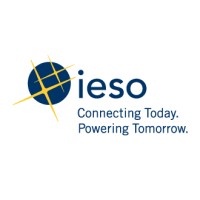
Expanded Energy Management Program
Independent Electricity System Operator (IESO)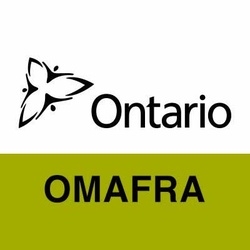
Ontario Food Exports — Services for Exporters
Government of Ontario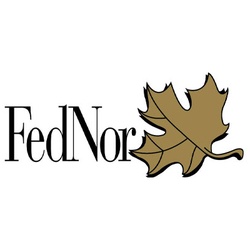
FedNor — Regional Tariff Response Initiative
Federal Economic Development Agency for Northern Ontario (FedNor)
Regional Artificial Intelligence Initiative (RAII) for Northern Ontario
Federal Economic Development Agency for Northern Ontario (FedNor)
Grains Innovation Fund
Grain Farmers of Ontario (GFO)
Regional Tariff Response Initiative (RTRI) — Northern Ontario
Federal Economic Development Agency for Northern Ontario (FedNor)
Food Safety and Growth Initiative
Sustainable Canadian Agricultural Partnership (SCAP)
Instant Discounts Program
Independent Electricity System Operator (IESO)
Retrofit Program
Independent Electricity System Operator (IESO)